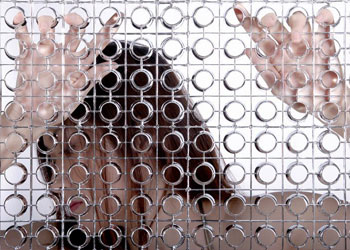 |
||
|
 |
Chinese in denial on
The Chinese government appears to have successfully prevented a repeat of last year's epidemic, which virtually shut down trade between China and the United States and hurt many CEOs' bottom lines. So far this season, only one confirmed case of SARS has been identified. The government has been quick to invite in outside experts and quarantine any suspected cases. But very little has changed, judging from a recent trip to the squalid animal market in Guangzhou, where the government ordered 10,000 civets exterminated after the World Health Organization determined the catlike animals carry a virus linked to SARS. Civets, dogs and other species continue to be slaughtered in highly unsanitary fashion. And the Chinese don't appear willing to accept that these practices are the root cause of SARS. Instead, many vendors were quick to point to the growing conspiracy theory that SARS is a U.S. biological weapons experiment targeted at the Chinese. "SARS came from the American government," said one vendor, to a chorus of consensus from shoppers and other sellers gathering around. It's a theory that has been circulating in Internet chat rooms for the past year. It died out somewhat when SARS did, but was revived last fall with the publication of The Last Defense Line: Concerns About the Loss of Chinese Genes by Tong Zheng, a business consultant with no medical background. Two major Chinese newspapers, including the Southern Metropolitan Daily in Guangzhou, reported on the theory on their front pages. The conspiracy theory also has enjoyed the government's tacit approval. Media, publishing and Internet chat rooms are monitored and censored; if the government had wanted to kill the discussion, it could have. Beijing may think letting the U.S. take the blame relieves it of its own culpability in the outbreak. [ILLUSTRATION OMITTED] The conspiracists are a minority, of course, but represent a bigger problem. By pointing the finger elsewhere, the Chinese can rationalize a refusal to make lasting changes in their practices. But if SARS really was caused by the proximity of humans to animals in unhygienic conditions, the threat of future outbreaks of SARS, and other diseases, remains. The latest episode of "bird flu" is further evidence that the underlying problem hasn't gone away. |
Copyright 2025 Chinaitol.com All rights reserved.
|
 THERE'S GOOD NEWS and not-so-good news about Sudden Acute Respiratory Syndrome in southern China.
THERE'S GOOD NEWS and not-so-good news about Sudden Acute Respiratory Syndrome in southern China.